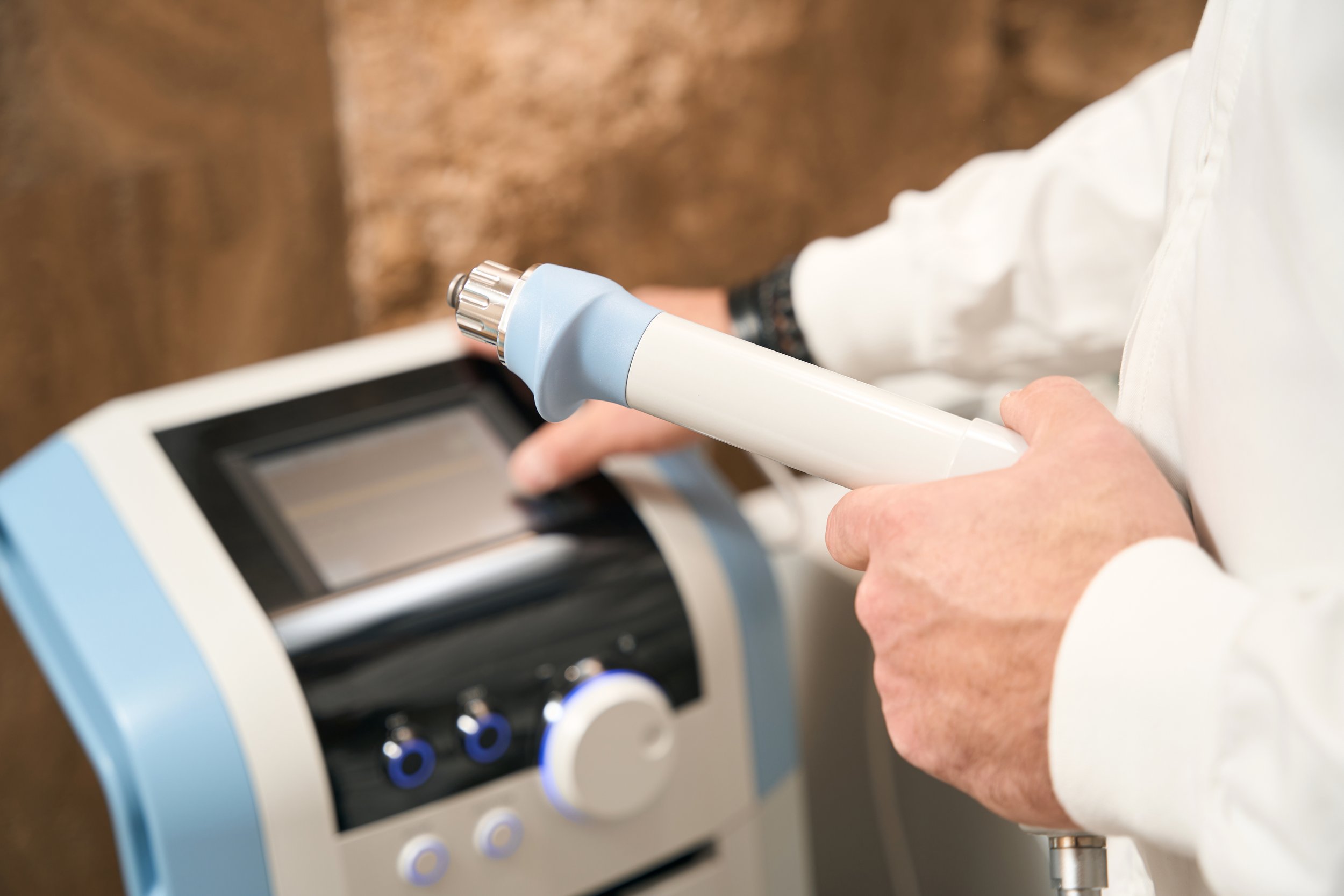
Erectile Dysfunction

What is erectile dysfunction?
Erectile dysfunction (ED), also known as impotence, is a common condition where a man has difficulty getting or maintaining an erection firm enough for sexual intercourse.
It’s estimated that 150 million men worldwide have ED and up to 50% of men between the ages of 40-70¹
Causes of erectile dysfunction
Physical causes of erectile dysfunction
Atherosclerosis, which is the hardening or narrowing of the arteries
Diabetes
Obesity
Heart disease
High blood pressure
High cholesterol
Increased age
Multiple sclerosis
Parkinson's disease
Sleep disorders
Drug induced causes of erectile dysfunction
Blood pressure medications
Antidepressants and anti-anxiety medication
Prostate cancer drugs
Sedatives
Chemotherapy drugs
Psychological/emotional causes of erectile dysfunction
Depression
Anxiety
Stress
Low self-esteem
Performance anxiety
Relationship problems
Other substances
Alcohol
Nicotine
Marijuana
Cocaine
Opioids

Erectile dysfunction symptoms:
Erectile dysfunction symptoms vary person to person, but the most common is trouble getting an erection and maintaining an erection during sex. Other symptoms include:
Unable to get an erection before sex.
Getting an erection before sex but not keeping it.
Unable to get an erection at all.
Needing a lot of stimulation to keep an erection.
Reduced sexual desire.
Premature ejaculation.
Delayed ejaculation.
Types of erectile dysfunction?
Psychogenic erectile dysfunction
Psychogenic erectile dysfunction occurs as a result of psychological factors rather than physical health issues. This type of erectile dysfunction is typically linked to emotional or mental challenges such as stress, anxiety, depression, or relationship problems.
Vascular erectile dysfunction
Vascular erectile dysfunction is a type of erectile dysfunction that occurs due to issues with blood flow to the penis. When blood vessels are compromised, it becomes difficult for the penis to receive the necessary blood flow to achieve or maintain an erection.
Neurogenic erectile dysfunction
Neurogenic erectile dysfunction arises from issues related to the nervous system. This type of erectile dysfunction occurs when there is a disruption in the nerve signals that are essential for achieving and maintaining an erection. Causes can include spinal cord injuries, neurological disorders such as Parkinson’s disease and multiple sclerosis, and surgical procedures that affect the pelvic area.
How is erectile dysfunction diagnosed?
Medical history and physical exam
To diagnose erectile dysfunction, one of our providers will review your medical history and perform a physical exam. It's important that you communicate openly and honestly about other physical symptoms you might be experiencing. You can also expect the following:
A blood pressure test.
A blood test for signs of heart disease, diabetes, and low testosterone.
A urinalysis to look for signs of diabetes and other health conditions.
Examining your penis and testicles.
Checking nerve function in the pelvis.
Questions you may be asked include:
How long have you been dealing with erectile dysfunction?
How often do you have sex? Any problems with sexual desire or ejaculating?
How much alcohol do you drink?
Do you smoke?
Do you use recreational drugs?
Psychosocial exam
Our provider will also ask questions about your emotional wellbeing and mental health, which can affect sexual performance. Some questions include:
Do you have anxiety or depression?
Are you taking any prescriptions for your mental health?
Have you been dealing with a lot of stress lately?
Are you in a relationship? How have things been with your partner?
Preventing erectile dysfunction
How to prevent erectile dysfunction
Preventing erectile dysfunction involves making lifestyle choices that promote overall health and well-being. Here are some steps to help reduce the risk:
Maintain a healthy diet:
Eating a balanced diet rich in fruits, vegetables, whole grains, and lean proteins can help maintain proper blood flow and reduce the risk of conditions that may lead to erectile dysfunction, such as cardiovascular disease and diabetes.
Manage stress:
Chronic stress and anxiety can negatively impact sexual performance. Incorporate stress-reducing practices such as mindfulness, meditation, yoga, or deep breathing exercises into your routine.
Sleep well:
Adequate sleep is essential for overall health. Aim for 7-9 hours of quality sleep per night to help maintain hormonal balance and reduce stress levels.
Quit smoking:
Smoking can damage blood vessels and restrict blood flow to the penis. If you smoke, seek help to quit.
Monitor your medications:
Some medications can contribute to erectile dysfunction. If you suspect that your medication is affecting your sexual performance, consult your healthcare provider for alternatives.
Exercise regularly:
Engaging in regular physical activity improves blood circulation, boosts testosterone levels, and enhances overall stamina. Aim for at least 30 minutes of moderate exercise most days of the week.
Limit alcohol consumption:
Excessive alcohol intake can interfere with erectile function. Moderation is key.
Regular health checkups:
Regular visits to your healthcare provider can help detect and address potential health issues before they affect your erectile function. Monitor important health indicators such as blood pressure, cholesterol levels, and blood sugar levels.
Treatment for erectile dysfunction
At MIMIT Health, we offer treatment for erectile dysfunction using the following methods:
Shockwave Therapy
Shockwave therapy is a non-invasive treatment for erectile dysfunction that uses low-intensity acoustic wave pulses to improve blood flow to the penis. During the procedure, these acoustic waves are applied to targeted areas of the penis, stimulating the growth of new blood vessels and improving overall blood circulation. This, in turn, can enhance the quality of erections and sexual performance in some men with erectile dysfunction. While individual results may vary, shockwave therapy is considered a promising option for those seeking alternative treatments for erectile dysfunction.
Platelet-Rich Plasma Injections
Platelet-rich plasma (PRP) injections have shown promise in treating erectile dysfunction (ED) by improving blood flow and tissue regeneration in the penile area. The procedure involves extracting a small amount of the patient's blood, processing it to concentrate the platelets, and then injecting the PRP directly into the penis. The growth factors in PRP stimulate the growth of new blood vessels and improve tissue health, ultimately enhancing the patient's ability to achieve and maintain erections. Research suggests that PRP injections can lead to improvements in erectile function, making it a potential non-invasive treatment option for ED.
Testosterone Replacement Therapy
Testosterone Replacement Therapy (TRT) can be an effective treatment for men whose erectile dysfunction (ED) is linked to low levels of testosterone.
When testosterone levels are insufficient, men may experience decreased sexual desire and difficulties achieving or maintaining erections. TRT helps by restoring testosterone levels to a normal range, which can improve sexual desire and overall erectile function.
1. Johannes CB, Araujo AB, Feldman HA, Derby CA, Kleinman KP, McKinlay JB. Incidence of erectile dysfunction in men 40 to 69 years old: longitudinal results from the Massachusetts male aging study. J Urol. 2000 Feb;163(2):460–463.





